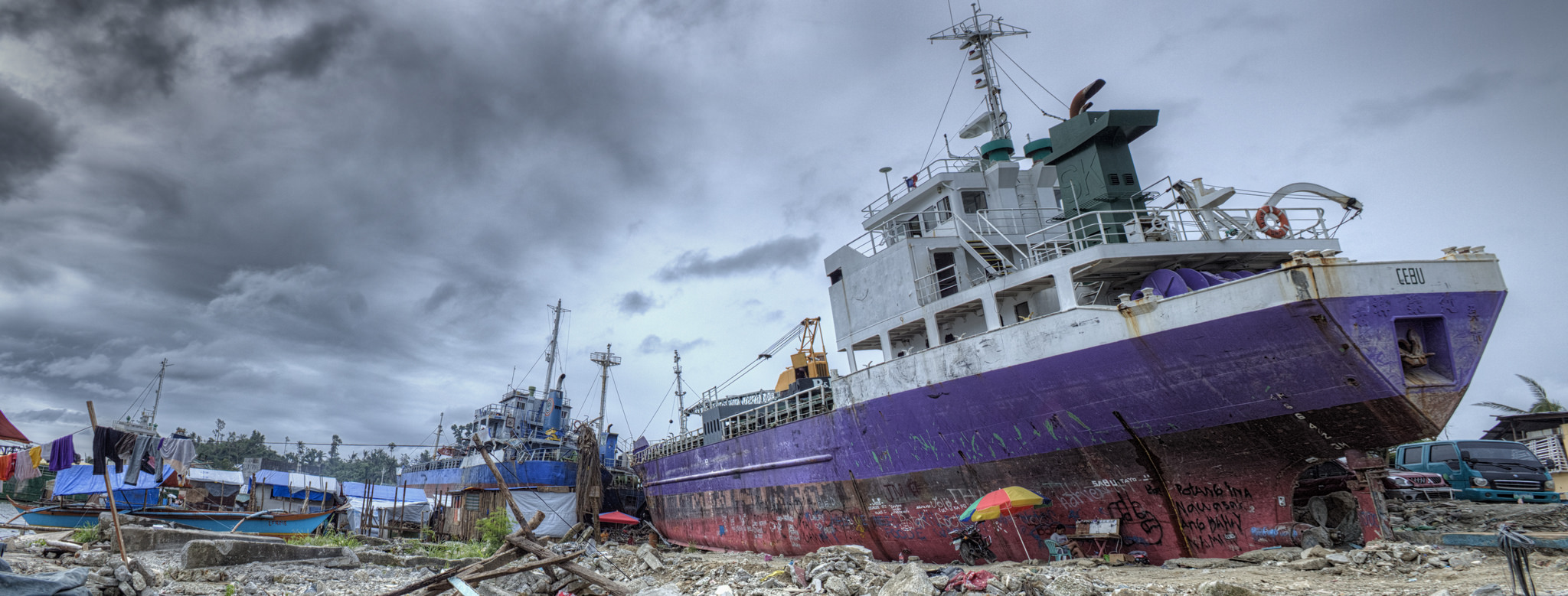Greenpeace Südostasien, das Philippine Rural Reconstruction Movement und andere philippinische NGOs haben eine Beschwerde bei der nationalen Menschenrechtskommission eingereicht und fordern eine Untersuchung der Verantwortung der großen fossilen Produzenten für die Klimawandelschäden, die u.a. durch Taifune entstanden sind:
„My name is Elma Reyes and I have two kids. Typhoon Glenda destroyed our livlihood. I could not harvest our coconuts and fish for about five months.
Now, the Human Rights Commission knows that you want them to hold the big corporate polluters accountable for their contribution to the climate crisis.
We will notify you as soon as we submit the petition to the Commission on Human Rights.
People say this is going to be our way of life from now on, where typhoons will be more intense and affect our sources of income. If that is the case, I will not be able to provide for my family and feed my children. I will not give up and allow big companies to continue to dig up coal and drill for oil and gas that is fueling climate change and increasing the risk of more intense typhoons.
To fight, I am taking a stand with Greenpeace Southeast Asia, the Philippine Rural Reconstruction Movement and other local NGOs by demanding that the Commission on Human Rights of the Philippines open a critical investigation.
We are asking the Commission on Human Rights to investigate the big carbon polluters for human rights violations that have or will result from the impact of climate change.
We need as many of you as possible, especially Filipinos at home or abroad, to sign here and tell the Commission on Human Rights that they must take action against the big carbon polluters.“
Sign the petition here.
Gestern haben wir übrigens in Berlin das Buch „AGAM – Filippino Narratives on Uncertainty and Climate Change“ gelauncht: “Agam“ ist ein traditioneller philippinischer Begriff, dessen Bedeutung sowohl Unsicherheit als auch Erinnerung impliziert. In bedrückender Aktualität reflektiert er zugleich das Spannungsverhältnis zwischen Klimawandel und kultureller Diversität auf den Philippinen: Dort hat der Klimawandel in den vergangenen Jahren mit Supertaifunen gleich mehrfach zugeschlagen und mehrere tausend Opfer gefordert.
Das Buchprojekt AGAM: Filipino Narratives on Uncertainty and Climate Change setzt sich literarisch mit der brutalen Realität des Klimawandels und seinen Folgen für die Lebenswirklichkeiten der kulturell diversen philipinischen Gesellschaft auseinander – fernab der abstrakten Welt der Klimapolitik. 26 Fotografien von Jose Enrique Soriano sind der Ausgangspunkt für Texte in acht philippinischen Sprachen. Die 24 Autorinnen und Autoren, die sie verfassten, kommen aus Kunst und Wissenschaft verschiedener Disziplinen.
Sie fokussieren sich auf das Kleine, den Nahbereich und fragen nach den Menschen, nach dem was war, was sein könnte und was ist. Red Constantino, Initiator des Projekts AGAM, unterstützt mit seiner Organisation, dem Institute for Climate and Sustainable Cities, durch den Verkauf des Buches Projekte in der vom Supertyphoon „Haiyan“ zerstörten Stadt Tacloban. Dort werden z.B. solarbetriebene Busse („Jeepneys“) finanziert. Mehr Informationen unter www.agam.ph und www.re-charge.ph.

